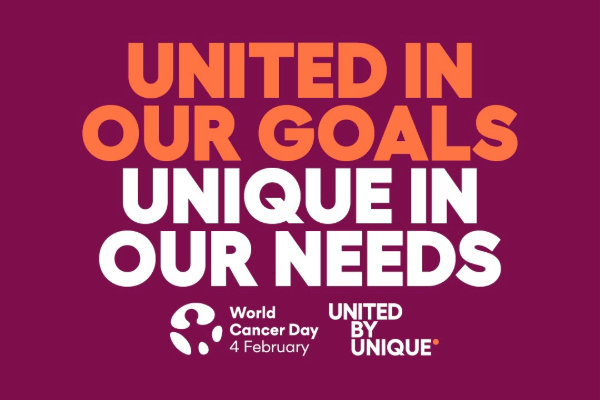
In advance of World Cancer Day 2025, which takes place on Tuesday 4 February, Luxembourg’s Minister of Health and Social Security, Martine Deprez, has spoken on the importance of understanding the needs and expectations of those undergoing treatment for cancer, and how this is essential in improving care and health policies.
Minister Deprez met with those who face this disease, stating: "During conversations with patients, health professionals and other stakeholders supervising patients with cancer, I was able to appreciate the commitment of all the professionals and volunteers working around the patient in order to offer them a quality pathway. While remaining attentive to the need to better organise certain elements and to guarantee holistic care for everyone. I would like to take this opportunity to relaunch a message of hope: mortality due to cancer is constantly decreasing and today, thanks to the continuous improvement in care, many patients live and survive with and despite cancer. Their friends and families support them and together we face and support them in their fight."
As communicated by the Ministry of Health and Social Security, the Health Directorate is committed to the fight against cancer, in particular through the National Cancer Plan (PNC2) 2020-2026. As part of this plan, the national colive cancer survey, launched in 2022, gives patients a voice. People currently undergoing treatment or who have had cancer treatment since 2020 can share their experience on colivecancer.lu.
In partnership with the Luxembourg Institute of Health (LIH), the Health Directorate also launched the third national European Health Interview Survey (EHIS) in January 2025, which aims to assess the health status of residents and compare the results on a European scale. Around 18,000 Luxembourg residents receive a questionnaire designed to record a number of parameters and indicators concerning their health status. Described as voluntary and anonymous, but also crucial, participation will contribute to improving both national and European health policies via the data collected.
Those who wish to participate in the European Health Interview Survey can do so at www.lih.lu/en/microsite/ehis-en/.
The authorities also stressed it is important to remember that different preventive measures exist and can be applied to reduce the risk of cancer. These include:
- maintaining a healthy lifestyle (do not smoke, do not drink alcohol, eat a balanced diet, do regular physical activity and protect oneself from the sun);
- getting vaccinated (in particular against the papillomavirus, which reduces the risk of cancers such as those of the cervix, anus, oropharynx, penis, vulva and vagina and against hepatitis B, which reduces the risk of liver cancer);
- participating in screening via national programmes (e.g. breast and colon cancer).








